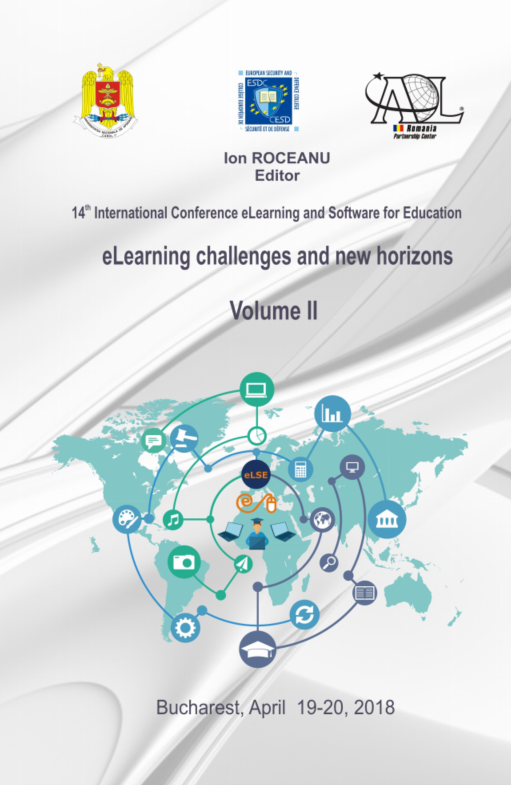Towards an Online 3D Gaming and Simulation Environment for Teachers in Special Education
Towards an Online 3D Gaming and Simulation Environment for Teachers in Special Education
Author(s): George Milis, Marianna Gregoriou, Katerina MANDENAKI, Nina TSVETKOVA, Maria GORANOVA, Francesca DI CONCETTO, Thomas ConnollySubject(s): Social Sciences, Education
Published by: Carol I National Defence University Publishing House
Keywords: 3D games; simulation environment; virtual practice learning; teachers training; intellectual disabilities;
Summary/Abstract: A recent report by the Social Protection Committee on the social dimension in the EU 2020 strategy, stated that greater emphasis must be put on innovating the training of human capital to be responsible for improving the quality of life for vulnerable people throughout Europe, including persons with intellectual and developmental disabilities. Education plays a pivotal role in this process and presents many challenges, especially with regard to the practice learning. However, arranging practice learning for students carries the challenge of finding qualified mentors/practice assessors, finding sufficient numbers of placements for all students, and addressing the risks associated with the safety and well-being of students and trainees. An innovative approach to experiencing practice learning is through simulation- and game-based education where students engage in an imitation of a real-world scenario in playful ways. An immediate advantage of interactive simulations and games is the provision of risk-free environments in cases where consequences are too costly or hazardous in real life; with a simulated practice game there are no consequences outside the boundaries of the game environment. Responding to the above challenges, the Play2Do project (http://www.play2do.eu) develops a 3D gaming environment that provides a safe and readily accessible environment where students studying to become teachers of people with intellectual disabilities can learn by interacting with non-player characters in a simulation of real world scenarios. The approach uses a more modern, constructivist approach to education and represents an example of innovative education in a digital era, particularly a computer-games era. The core constituent of the gaming/simulation environment are the real-world scenarios. In our work, we engaged special education experts from the UK, Greece, Italy, Bulgaria and Cyprus and created first a sound understanding of what exact needs are addressed by the simulation environment and second a set of six well-defined scenarios. For instance, dealing with a case in the autism spectrum, the player faces certain behaviour patterns in a simulation setting and finds his/her way through the scenes by interpreting the situation and responding appropriately. A key research finding is that gaming and virtual simulations in practice learning may be better used as a tool to give teachers a certain level of confidence and knowledge but not as a replacement of actual practice.
Journal: Conference proceedings of »eLearning and Software for Education« (eLSE)
- Issue Year: 14/2018
- Issue No: 02
- Page Range: 217-224
- Page Count: 8
- Language: English

